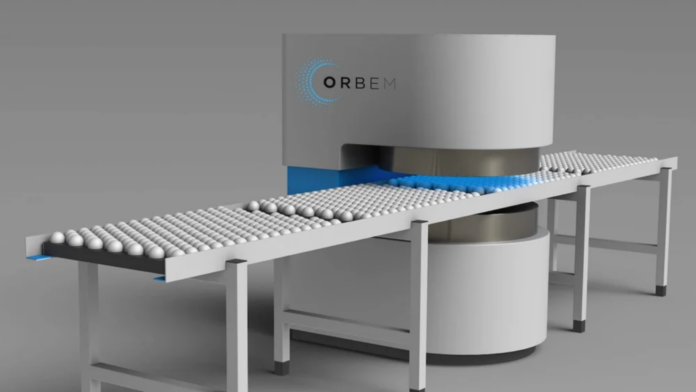Imagine a world where MRI scans are faster, more accurate, and non-invasive. Well, that future might be closer than you think. A Munich-based startup called Orbem has raised $32 million in funding to revolutionize MRI scans. Initially focusing on scanning eggs to determine their gender and freshness, Orbem has developed an AI-based platform that combines an industrial MRI scanner and artificial intelligence to scan an egg in just one second. With this success, Orbem plans to expand its technology to scan humans, nuts, plant species, and even construction materials. The marriage of MRI and AI is quickly becoming a trend to watch, with the potential to transform medical imaging and improve diagnostic accuracy. Get ready for the AI revolution in MRI scanning!
In recent years, artificial intelligence (AI) has revolutionized various industries, and now it’s making its mark in the field of MRI scans. A Munich-based startup, Orbem, has raised an impressive $32 million in funding to develop a groundbreaking technology. Their innovative solution combines an industrial MRI scanner with an AI-based platform to achieve faster and more accurate scans. Initially focused on scanning eggs to determine their gender, the startup has achieved remarkable success and is now setting its sights on using AI to revolutionize MRI scans in humans.
Germany, France, and Italy are among the countries that have recently enacted laws to prevent the practice of culling male day-old chicks. This practice is considered unnecessary and unethical as male chicks do not lay eggs. These laws were introduced to encourage technology companies to find ways to determine the gender of chicks before they hatch.
Hyperspectral imaging has emerged as a promising solution for detecting the gender of chicks based on plumage color on day 13 of incubation. This technology has been successfully implemented in commercial hatcheries using a fully automated system called “CHEGGY.” These systems can also detect other aspects of eggs, such as freshness, broken yolks, and shell cracks, with an accuracy rate of up to 97% in some cases. However, the main drawback of this system is its slow scanning process.
Orbem, a Munich-based startup, has developed a groundbreaking solution to speed up the scanning process in the gender detection of eggs. Combining an industrial MRI scanner with an AI-based platform, Orbem enables hatcheries to determine the sex of an egg in a contactless and non-invasive manner. This innovative technology has the potential to transform the poultry industry by reducing wasted unfertilized eggs and eliminating the need to culminate male day-old chicks.
One of the key advantages of Orbem’s solution is its ability to scan an egg in just one second, significantly faster than existing processes. By leveraging AI and advanced imaging techniques, Orbem has achieved a remarkable improvement in efficiency, allowing hatcheries to increase productivity and reduce waste.
Since its launch in 2019, Orbem has made significant strides in the field of egg scanning. The startup has scanned over 20 million eggs and has achieved profitability. To further fuel their growth, Orbem recently raised a Series A funding round of €30 million ($31.8 million). Leading the investment round was 83North, with participation from new investor La Famiglia and existing investors The Venture Collective and Possible Ventures. Prior to this funding round, Orbem had already raised €10 million, including equity-free money from research grants provided by the European Union and the German government.
Orbem, a Munich-based startup, has made significant advancements in the field of AI-enhanced MRI technology. With their combination of an industrial MRI scanner and an AI-based platform, Orbem has revolutionized the scanning process for eggs, enabling hatcheries to determine the gender of chicks in a faster and more efficient manner. This breakthrough has not only improved productivity and reduced waste in the poultry industry but has also raised ethical and animal welfare standards. The success of Orbem’s solution has garnered significant attention and funding, highlighting the vast potential of AI and MRI technology. As AI continues to make its mark in the medical industry, the marriage of MRI and AI is set to become a significant trend to watch in the coming years. With the potential to enhance MRI scans in humans, AI-powered MRI technology is expected to replace less effective and invasive methods. Orbem’s sustainable competitive differentiation and technical vertical integration bode well for the future of the company. As more startups follow in Orbem’s footsteps, we can expect continued advancements and innovations in the field of MRI+AI technology.





